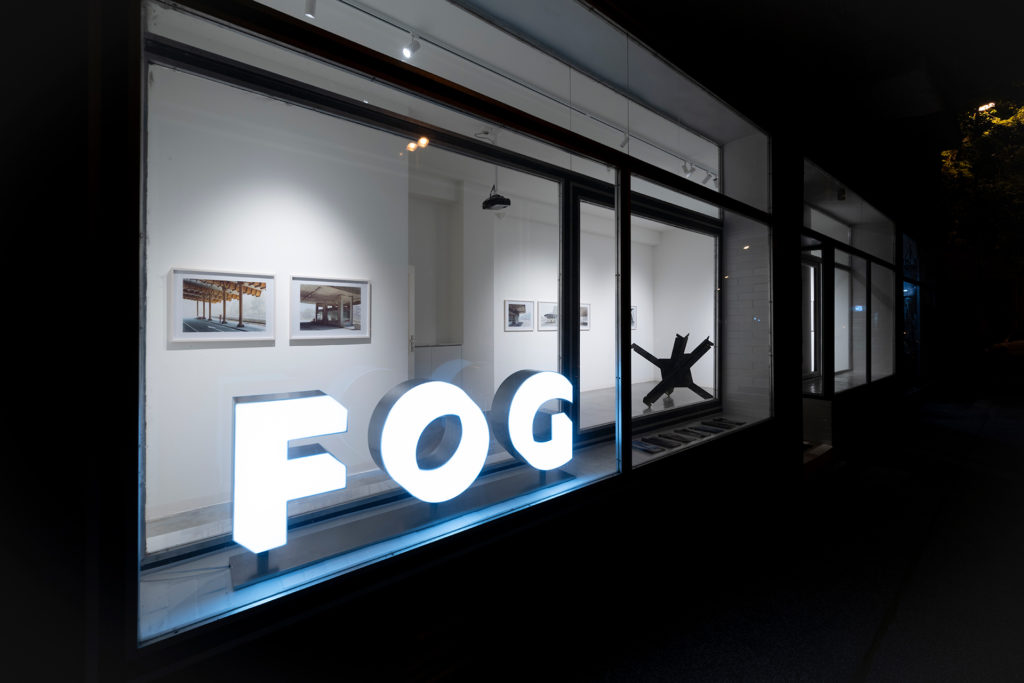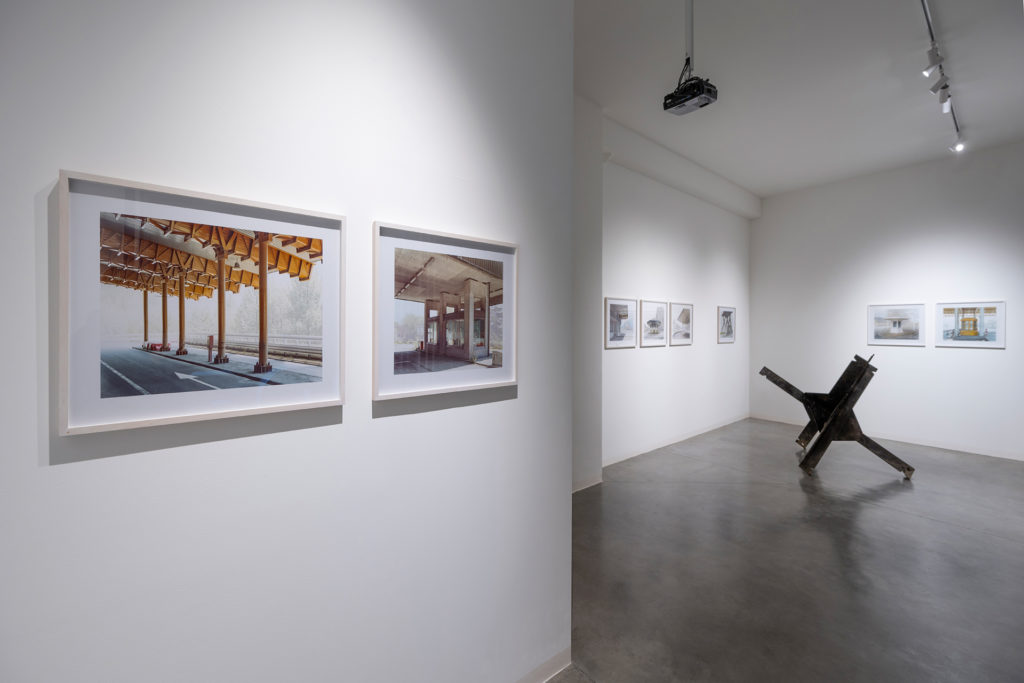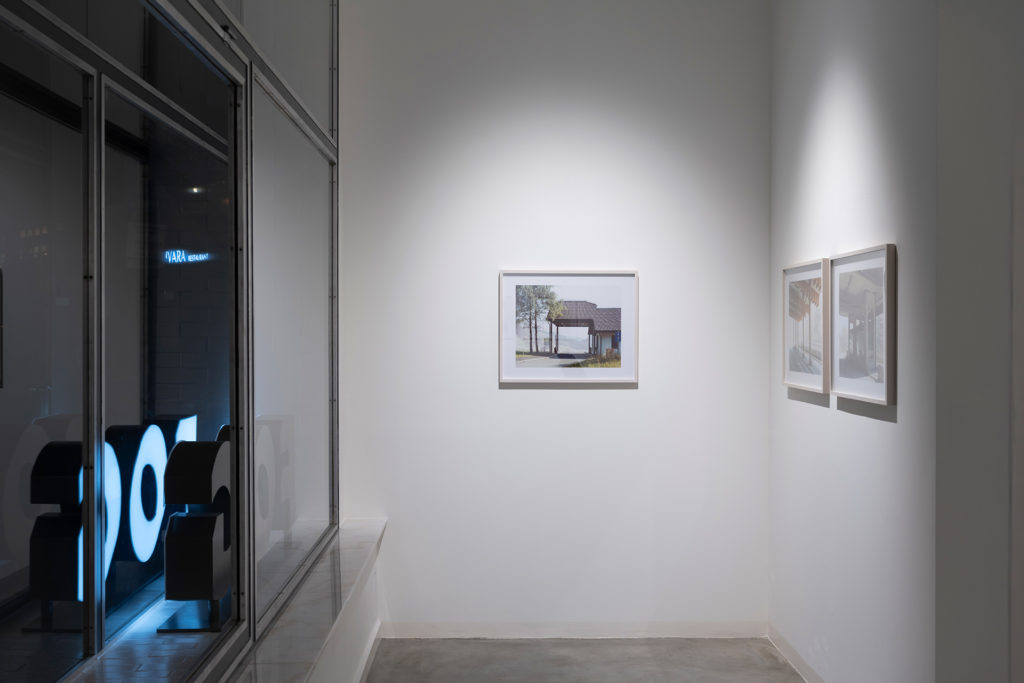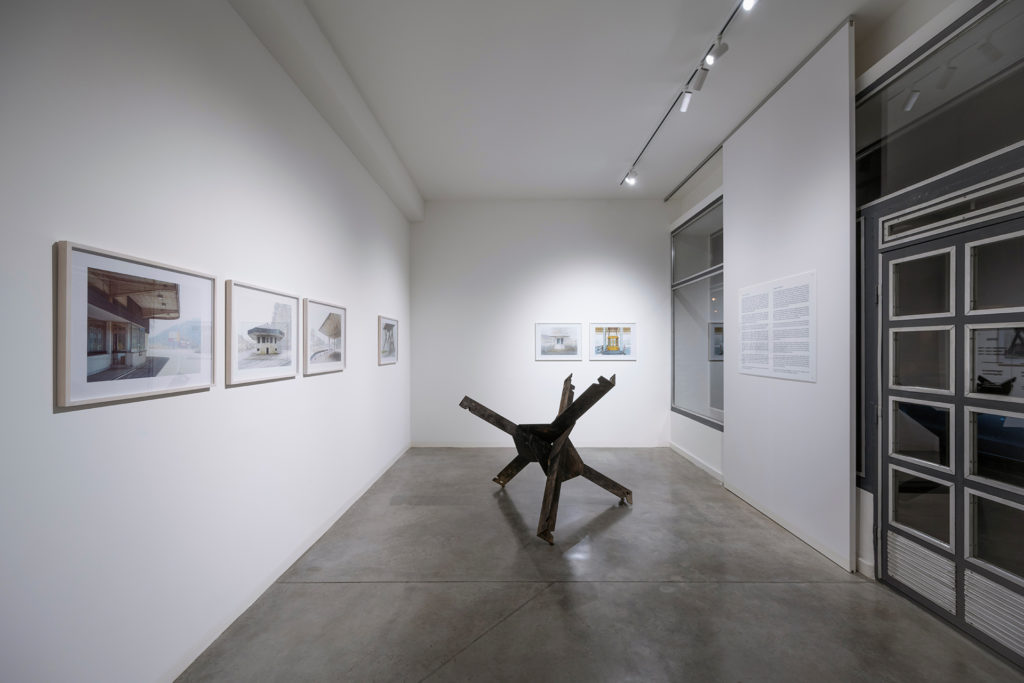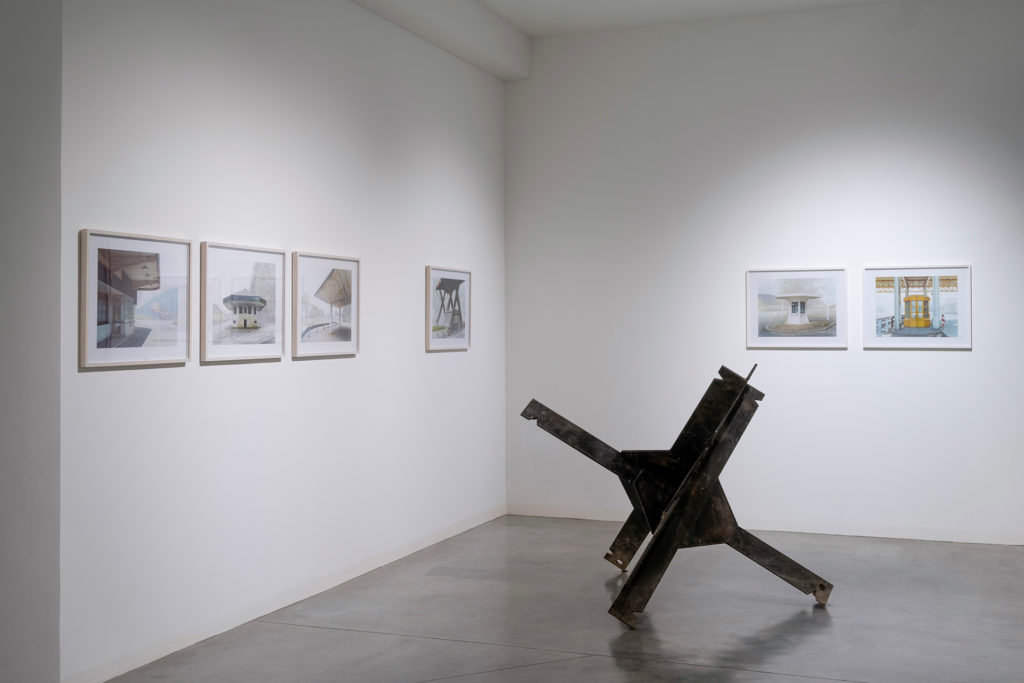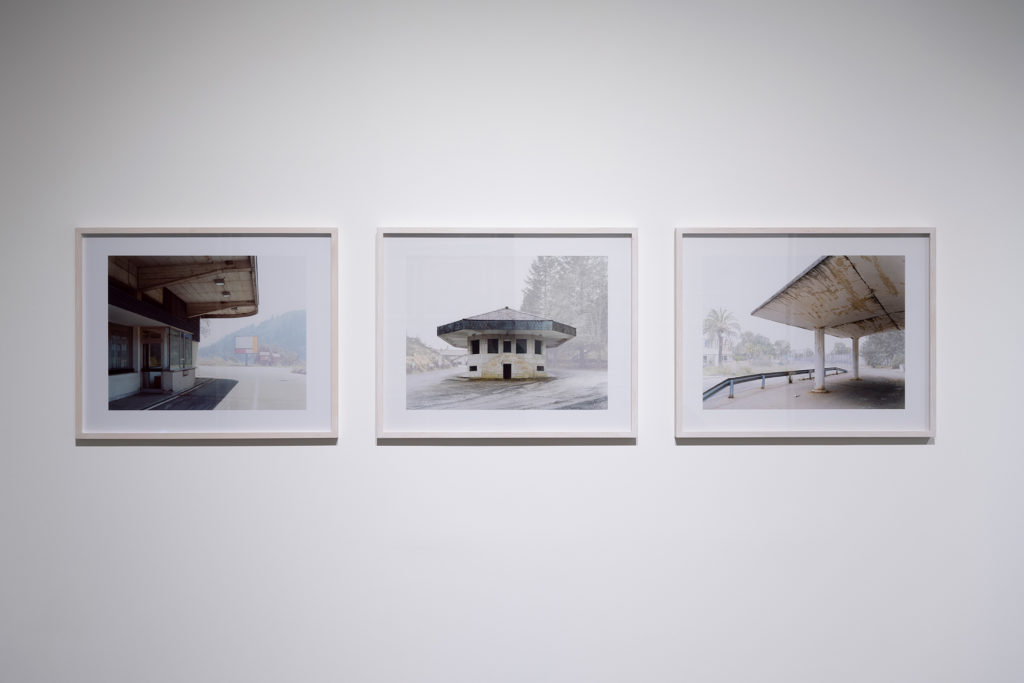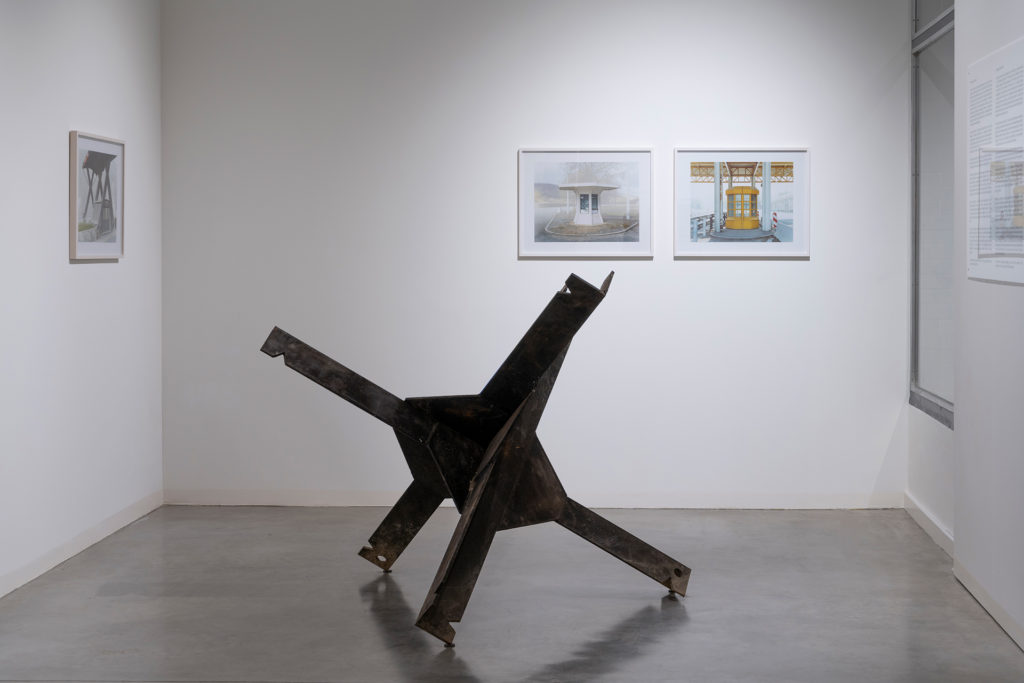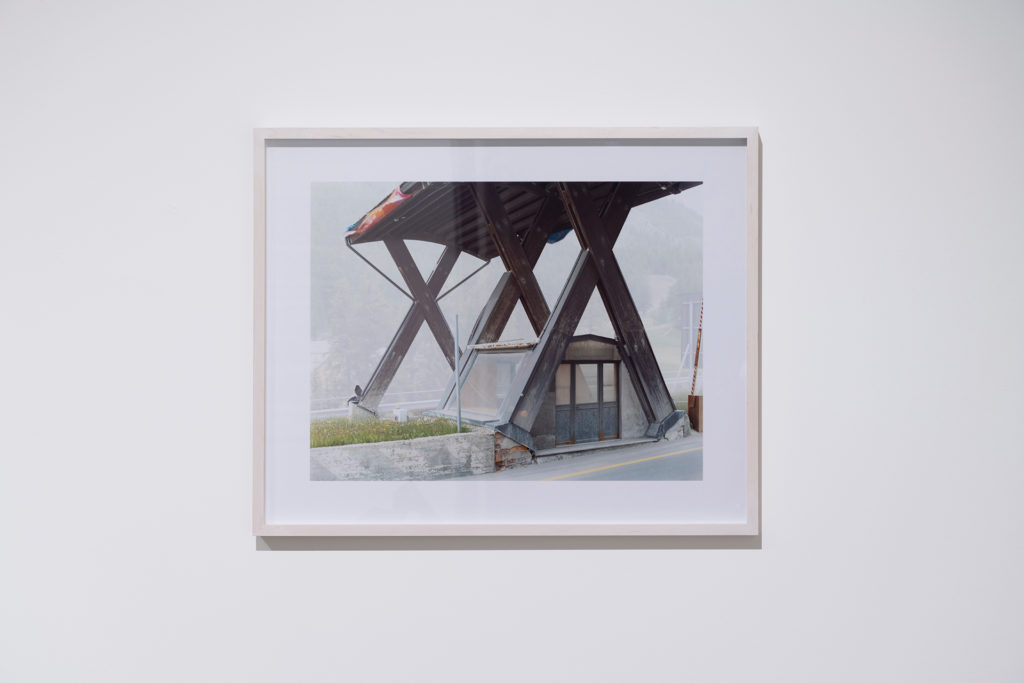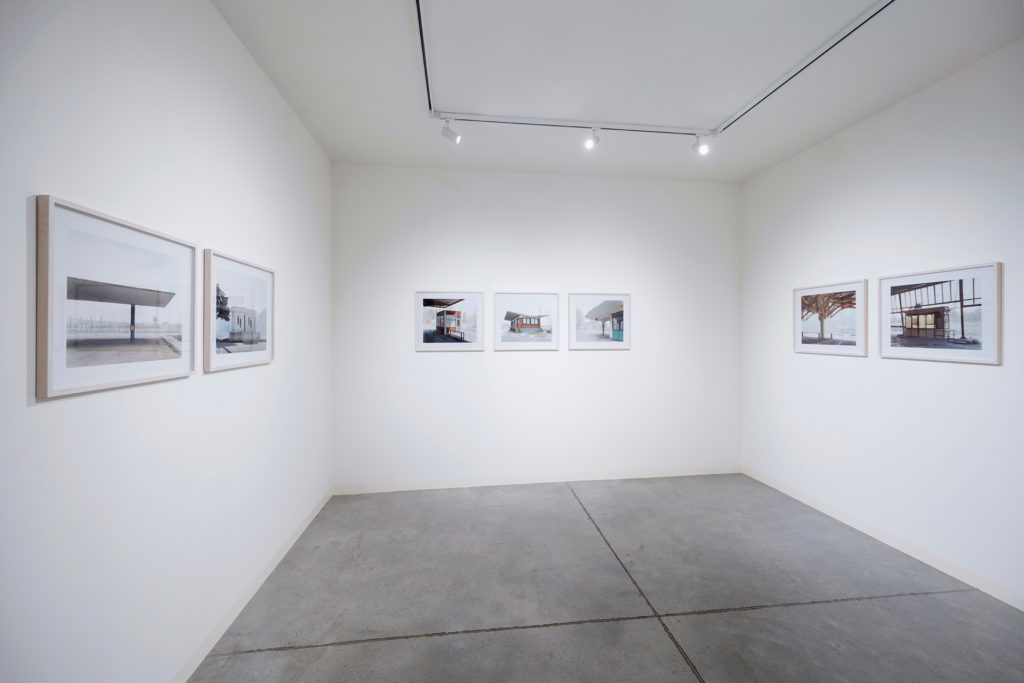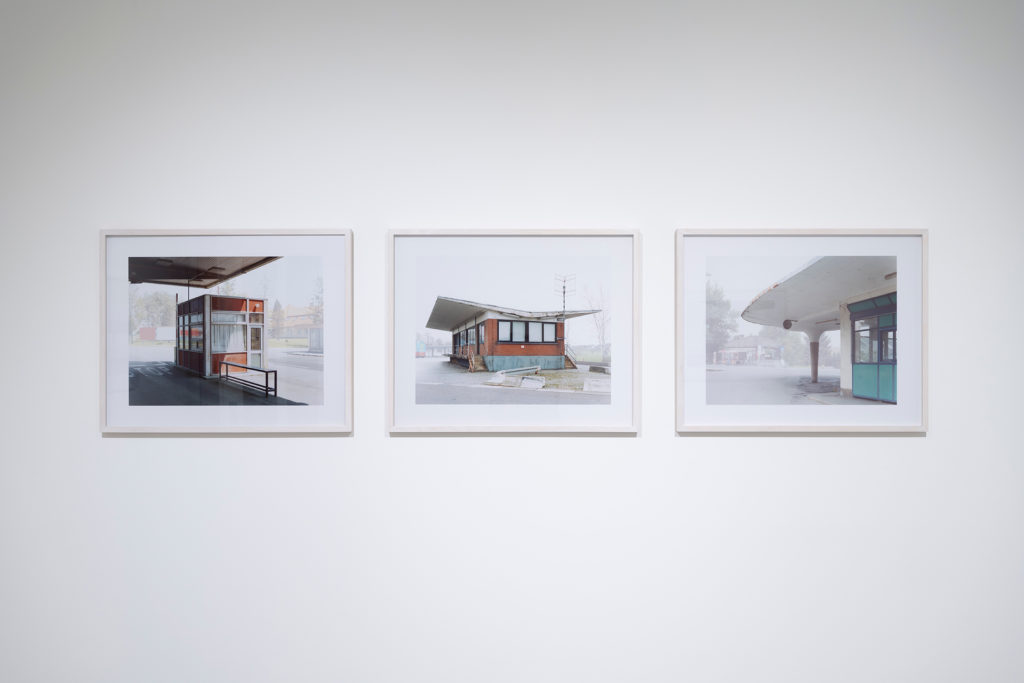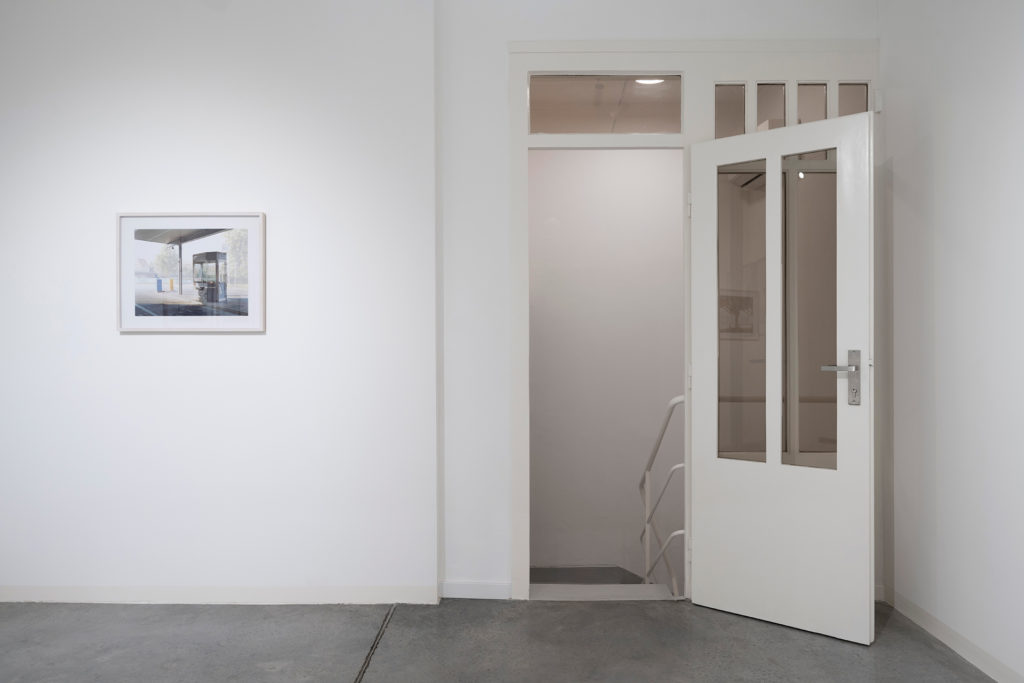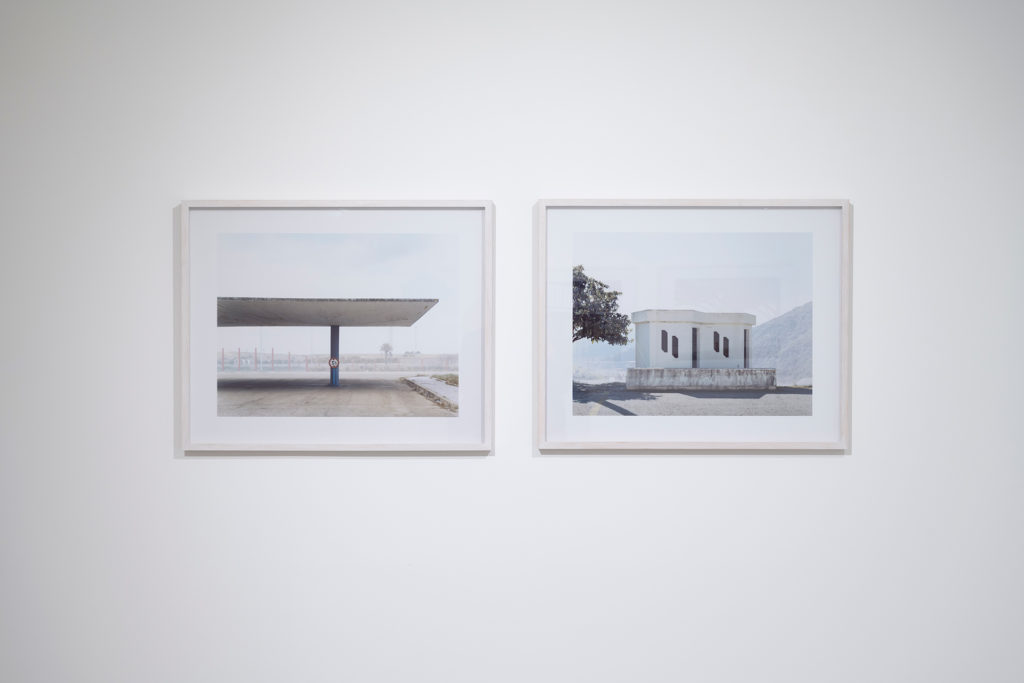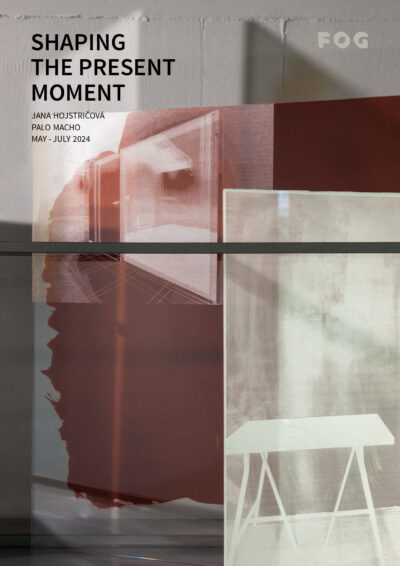Past exhibition
Passage
Josef Schulz
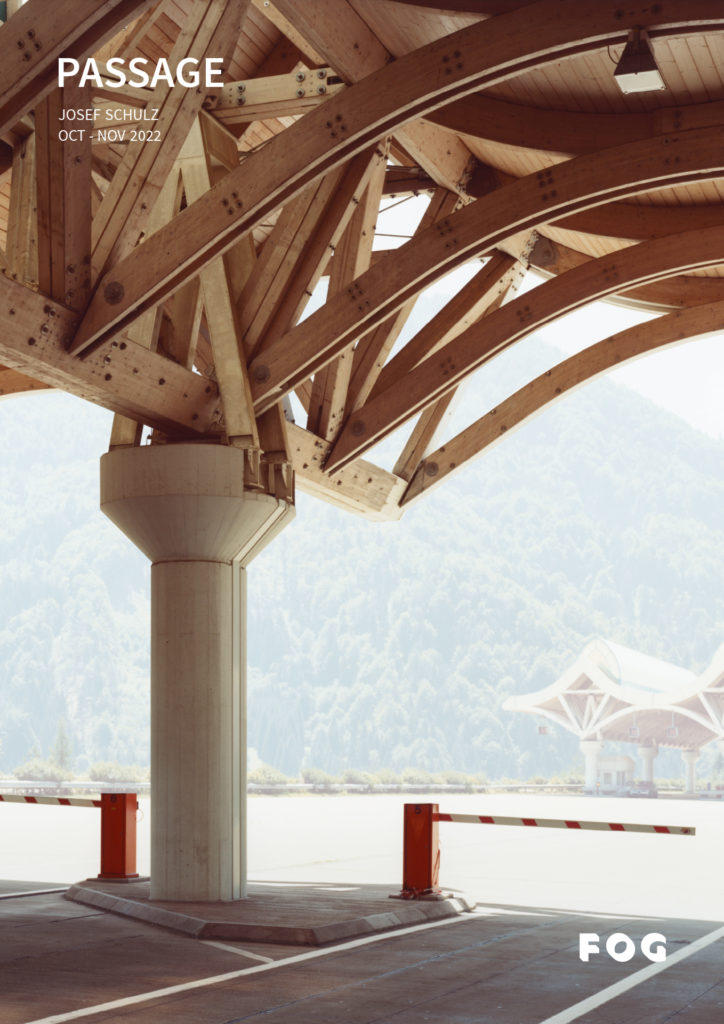
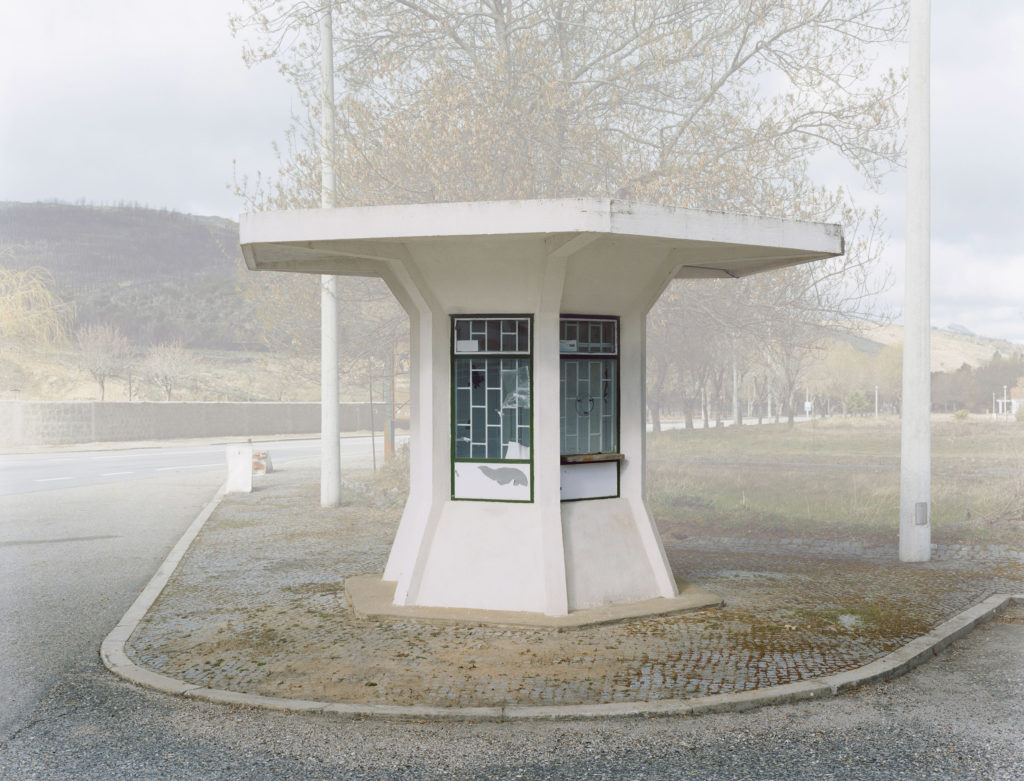
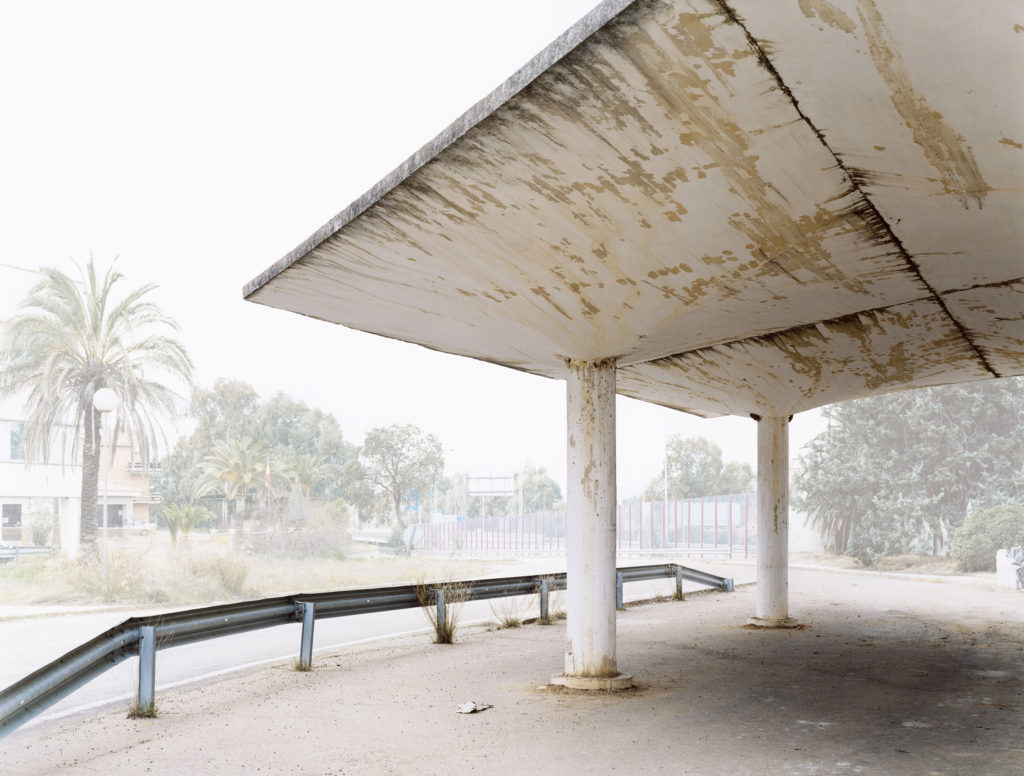
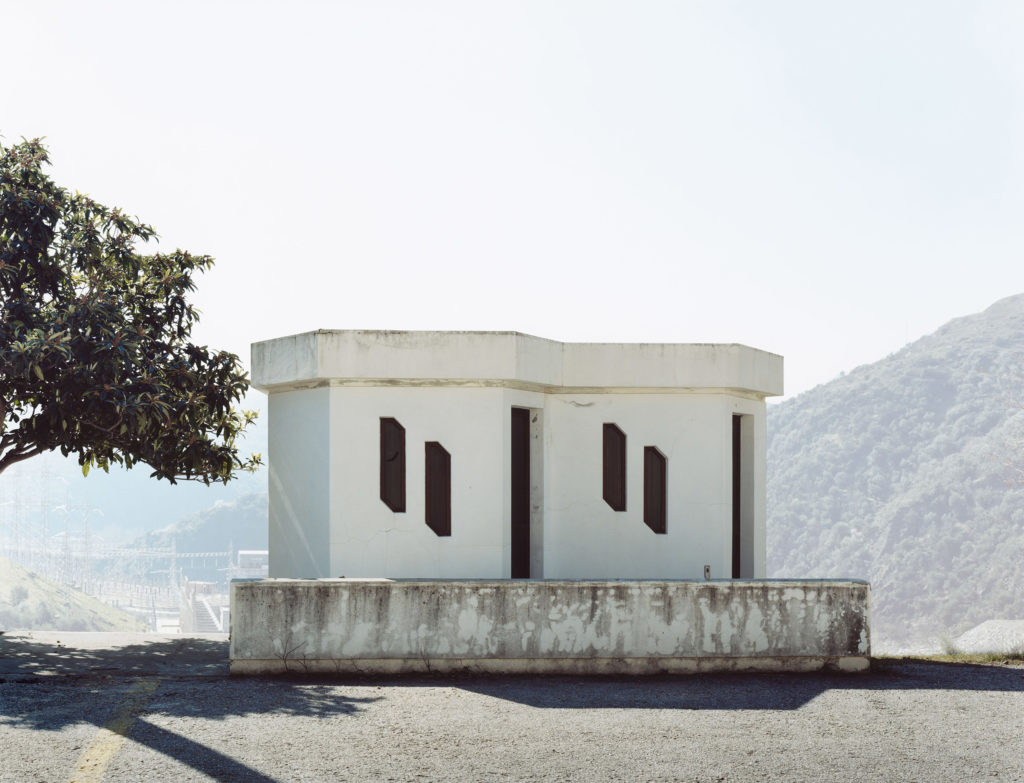
As was the case last year, the gallery’s autumn exhibition is presented within the OFF Bratislava programme. The festival’s subject, Elsewhere, comprises travelling, migration, aimless wandering, and the related concept of home, and touches on the phenomenon of borders too. In his project Passage, photographer Josef Schulz offers his view of abandoned and non-functional border posts within European Union. He slightly modifies the background of his original documentary images so that they emphasise his concept: that these objects seem to be standing single and function as memory preservers. At the same time, the author declares his Polish origin and his childhood within the borders of a communist country.
In his text for this project he says: “In the past, national borders were divisive by character. In some cases their purpose was to delineate between political, legal, fiscal and monetary systems, in others between linguistic and cultural differences. Borders were lines, drawn not only across territories but also through our heads. Thus, anything that was different, incomprehensible or irritating belonged in its very own physically defined space.
In present-day Europe, internal borders are losing their political and economic functions as points of demarcation. But border posts are much easier to abolish than mental barriers, and thus we continue to be conscious of former borders.
Documentary-style sequencing and de-contextualisation reduces border posts to a model. Architectural perceptions and period trends in individual countries become apparent. The border posts resemble abandoned sentinels or faded monuments of past partition. They will remind us of what has yet to be achieved, recalling that they could one day easily be returned to their previous function.
Moreover, my interest in these past places of border-line experience can be traced back to the story of my own life. I grew up in Poland, a country whose territory was repeatedly redefined over the course of its history. The border police have now disappeared from our frontiers, too, and the border stations seem quite harmless today – but they will continue to conjure up unsettling images in our minds for many years to come.”
We believe that this project is close to Slovak viewers, particularly to the generation who remember when these passages still functioned, above all in the context of the totalitarian regime. At the same time, we live in a period when it is necessary to remember that closed borders have never brought anything positive. And even though we know from history that closed borders are not a sustainable state, it is more important than ever to remind the young generation about their past.
The anti-tank Czechoslovak hedgehog is on loan for the duration of the exhibition by the Czechoslovak Fortification Museum.
